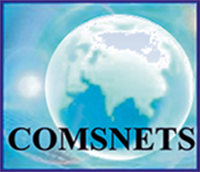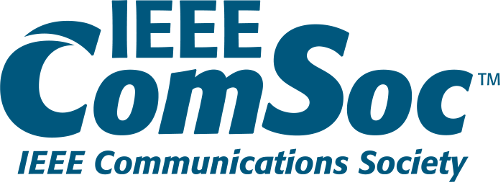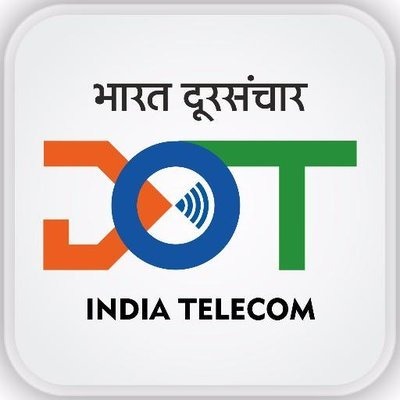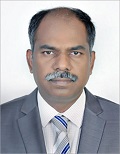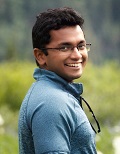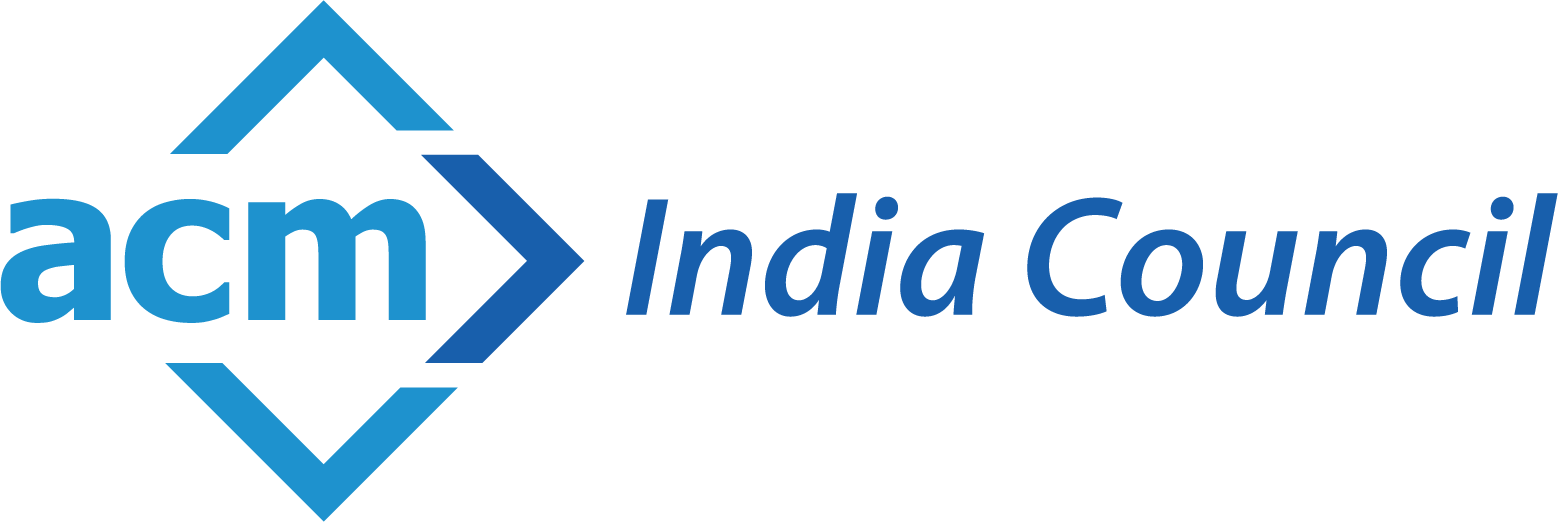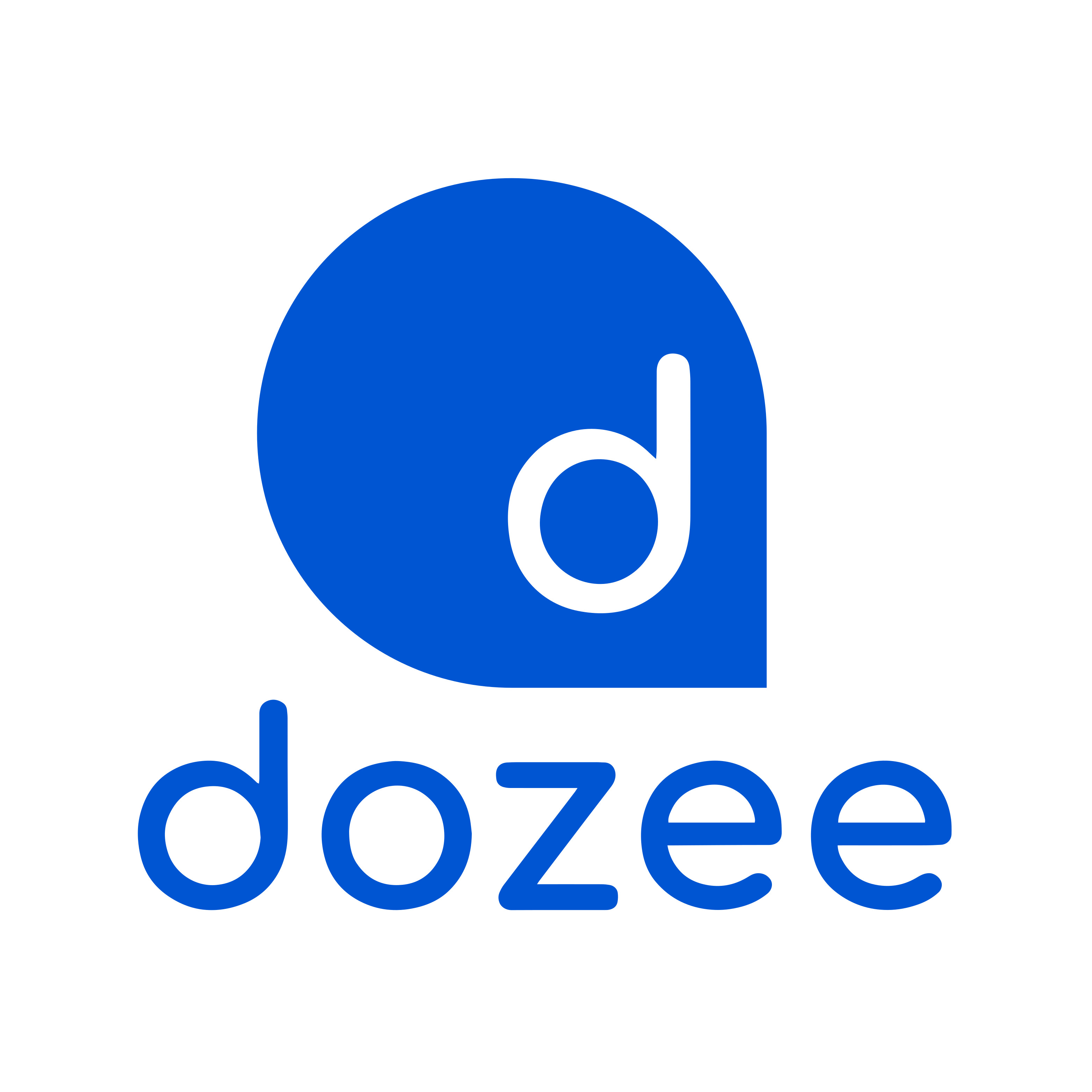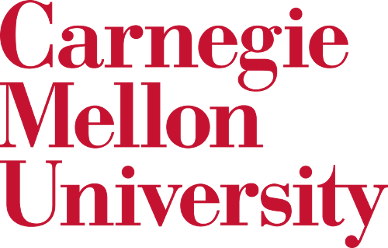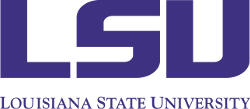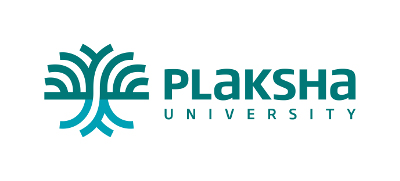TASIR Workshop: Testbeds for Advanced Systems Implementation and Research
Event Date: Sunday, 8 January 2023
Important Dates
| Paper Submission Due | |
| Paper acceptance notification | |
| Camera-ready Submission | 15th December 2022 |
| Workshop Date | 8th January 2023 |
Schedule
| Sunday, 8 January 2023 | ||
| Venue: SIGMA 1 | ||
| Time | Title | Speaker/Authors |
| 9:30-9:45 | Welcome by Workshop Chairs | |
| 9:45-10:30 | Keynote: Building Reliable and Resilient Mobile Network with 5G and MEC testbeds for Mission Critical Applications |
Dr Antony Franklin |
| 10:30-11:00 | Invited Paper: Spectrum Activity Monitoring and Analysis for Sub-6 GHz Bands Using a Helikite | Sung Joon Maeng, Özgür Özdemir, Haridevan Nandakumar, Ismail Güvenç, Mihail Sichitiu, Rudra Dutta, Magreth J Mushi (North Carolina State University, USA) |
| 11:00-11:30 | Tea Break | |
| 11:30-11:50 | Delay-based Fidelity Monitoring of Distributed Network Emulation | Houssam ElBouanani, Chadi Barakat, Walid Dabbous, Thierry Turletti |
| 11:50-12:10 | Performance Measurement of Distributed Storage on Edge Devices | Priyam Loganathan (BITS Pilani, Goa, India), Dhruv Rauthan (BITS Pilani, Goa, India), Animesh Trivedi, (VU Amsterdam, The Netherlands), Vinayak Naik (BITS Pilani, Goa, India) |
| 12:10-12:40 | Invited Paper: Experimental Research Reproducibility and Experiment Workflow Management | Yuri Demchenko (University of Amsterdam, The Netherlands), Sebastian Gallenmüller (Technical University of Munich, Germany), Serge Fdida (Sorbonne University, France) Panayiotis Andreou (University of Central Lancashire |
| 12:45-14:00 | Lunch | |
| 14 - 14:45 | Keynote: Intelligent wireless systems in the age of AI : From resilient communications to non-intrusive security & the importance of data | Dr Subhramoy Mohanti |
| 14:45 - 15:05 | A Multi-Tenant System for 5/6G Testbed as-a-Service | Raffaele Bolla (University of Genoa, Italy), Roberto Bruschi (CNIT, Italy), Chiara Lombardo (University of Genoa & CNIT- Italy), Sergio Mangialardi (University of Genoa, Italy), Alireza Mohammadpour (CNIT - S2N National Lab, Italy), Ramin Rabbani (UNIGE, Italy), Beatrice Siccardi (DITEN - University of Genoa, Italy) |
| 15:05 - 15:30 | Tea Break | |
| 15:30 - 15:50 | A Scalable Heuristic on Energy Consumption of Fog-RAN | Bharat Dwivedi, Sandip Chakraborty, Debarati Sen |
| 15:50 - 16:10 | EELAS: Energy Efficient and Latency Aware Scheduling of Cloud-Native ML Workloads | Ilias Syrigos, Dimitris Kefalas, Nikos Makris, Thanasis Korakis |
| 16:10 - 16:55 | Keynote: Indian 6G technology roadmap | Dr Abdul Kayum |
| 16:55 - 17:15 | Closing + Adjourn | |
Keynote Speaker
Mr. Abdul Kayum
Department of Telecommunications, Telecommunication Engineering Centre, Government of IndiaVisit Homepage
- Mr. Abdul Kayum is an Indian Telecommunication Service (ITS) officer of the 1992 batch presently heading the 6G Technologies Division in the Telecommunication Engineering Centre, New Delhi, under the Department of Telecommunication, Government of India.
- His current responsibilities include the development of TEC standards in the areas of 6G Technologies, Quantum Communication, Next Generation Passive Optical Networks, Emergency and Mission Critical Communication, and Sustainable Telecommunication.
- He is also a member of various task forces on 6G and Quantum Communication Technologies. Hon’ble, MoC has recently released the standard on Quantum Key Distribution developed under his leadership.
- He chairs National Working Group 12 (Performance, QoS, and QoE), corresponding to ITU Study Group 12. He is also working as an editor for a Work Item in ITU SG-12 and is a regular contributor to International Telecommunication Union - Telecom (ITU-T) SG-5 (Environment and Circular Economy), SG 12 (Performance, QoS and QoE), and SG-15 (Networks, Technologies and Infrastructures for Transport, Access and Home).
- His noticeable achievement in sustainable telecommunication is developing the TEC standard on ‘Energy Consumption Rating and Energy Passport for ICT products.
Dr. Antony Franklin
Indian Institute of Technology Hyderabad (IITH), IndiaVisit Homepage
Dr. Antony Franklin received his B.E. degree in Electronics and Communication Engineering from Madurai Kamaraj University, India, in 2000, his M.E. degree in Computer Science and Engineering from Anna University, India, in 2002, and his Ph.D. degree in Computer Science and Engineering from the Indian Institute of Technology Madras, India, in 2010. He is currently working as an Associate Professor at the Department of Computer Science and Engineering at the Indian Institute of Technology Hyderabad (IITH), India. Before joining IITH, he worked as a Senior Engineer at DMC R&D Center, Samsung Electronics, South Korea, between 2012 and 2015 and as a Research Engineer at Electronics and Telecommunications Research Institute (ETRI), South Korea, between 2010 and 2012. His current research is on the development of next-generation mobile network architectures and protocols, which includes Cloud Radio Access Networks (C-RAN), Mobile Edge Computing (MEC), Multi-Radio Aggregation, Internet of Things (IoT), and SDN/NFV. He has published over 70 articles in refereed international journals and conferences and has been granted 14 US patents. He is a senior member of the IEEE and a member of ACM. He has received Best Academic Demo Award at COMSNETS 2018 and the 2nd Best Paper Award at IEEE ANTS 2017. He has been TPC co-chair for National Conference on Communications (NCC) 2018, COMSNETS (Posters) 2019, and ADCOM 2019 conferences.
Subhramoy Mohanti
InterDigital, Los Altos, CaliforniaVisit Homepage
Wireless communications have experienced some unprecedented development in recent years aided by the advancement and inclusion of technologies like AI, UAVs, massive MIMO, mmWave among others. As researchers, we are not only blurring the line between reality and science fiction but also involved in ensuring sustainable and scalable implementation and wide scale adoption of these technologies. On this aspect, I will put forward the importance of wireless systems research with some example projects. Specifically, I will present distributed transmit data beamforming from multiple UAVs and the steps we took to build this testbed for adding resiliency to existing wireless infrastructure. I will also show that for mmWave communications between UAVs, how the real-time UAV hovering statistics along with the environment play a key role in fast beam selection and re-selection strategies to enable URLLC applications. Finally, I will demonstrate how with the help of AI, custom RF perturbations or RF fingerprints can be detected during over the air communications for non-intrusive identification without eavesdropping. These examples prove the need for and importance of empirical studies to realize a truly practical and implementable solution. Also, the need for reproducible and clean data is ever more important not only to enable AI in wireless but also for practical systems level research, and I will talk about a few of the existing testbeds and open-source projects that have the potential to enable these objectives.
Subhramoy Mohanti is currently working as a Research Scientist at InterDigital in Los Altos, California, where he develops next generation communication technologies through over-the-air experiments and systems-level testbed implementation. He received the Ph.D in Electrical and Computer Engineering from Northeastern University in 2022. His research interests include wireless systems, machine learning enabled communication, wireless protocols, and networked robotics. Dr. Mohanti received the Best Paper Award at IEEE INFOCOM in 2018. He was also a recipient of the Northeastern University Graduate Dissertation Research Grant in 2015 for pursuing system level research during his graduate studies at Northeastern University.
Accepted Papers
- A Multi-Tenant System for 5/6G Testbed as-a-Service
Raffaele Bolla (University of Genoa, Italy), Roberto Bruschi (CNIT, Italy), Chiara Lombardo (University of Genoa & CNIT- Italy), Sergio Mangialardi (University of Genoa, Italy), Alireza Mohammadpour (CNIT - S2N National Lab, Italy), Ramin Rabbani (UNIGE, Italy), Beatrice Siccardi (DITEN - University of Genoa, Italy) - A Scalable Heuristic on Energy Consumption of Fog-RAN
Bharat Dwivedi, Sandip Chakraborty , Debarati Sen (Indian Institute of Technology Kharagpur, India) - Delay-based Fidelity Monitoring of Distributed Network Emulation
Houssam ElBouanani, Chadi Barakat , Walid Dabbous, Thierry Turletti (Inria, Université Côte d'Azur, France) - EELAS: Energy Efficient and Latency Aware Scheduling of Cloud-Native ML Workloads
Ilias Syrigos, Dimitris Kefalas, Nikos Makris, Thanasis Korakis (University of Thessaly, Greece) - Experimental Research Reproducibility and Experiment Workflow Management
Yuri Demchenko (University of Amsterdam, The Netherlands), Sebastian Gallenmüller (Technical University of Munich, Germany), Serge Fdida (Sorbonne University, France) Panayiotis Andreou (University of Central Lancashire, Cyprus), Cédric Crettaz (Mandat International, Switzerland), Mathias Kirkeng (University of Amsterdam, The Netherlands) - Performance Measurement of Distributed Storage on Edge Devices
Priyam Loganathan (BITS Pilani, Goa, India), Dhruv Rauthan (BITS Pilani, Goa, India), Animesh Trivedi (VU Amsterdam, The Netherlands), Vinayak Naik (BITS Pilani, Goa, India) - Spectrum Activity Monitoring and Analysis for Sub-6 GHz Bands Using a Helikite
Sung Joon Maeng, Özgür Özdemir, Haridevan Nandakumar, Ismail Güvenç, Mihail Sichitiu, Rudra Dutta, Magreth J Mushi (North Carolina State University, USA)
The historic separation between the network and the compute has vanished. As defined by Sun microsystems long ago, “the Network is the Computer” (John Gage 1984); resources are everywhere supported by virtualization, distribution and cloud SaaS. This trend is going to impact the telecommunication and computer-based sectors, from design to products to operation. This will disqualify the multi-year planification approach based on new generations (2G/3G/4G/5G, etc.) and threaten the corresponding legacy industry. The science of Digital Infrastructures raises multiple complex challenges for the research community due to this convergence but also presents significant opportunities as the ITU, WRC and IMT 2030 vision for future networks is developed over the next decade.
Experimentation is becoming an essential methodology to assess and qualify the diverse design assumptions and choices in realistic conditions. It addresses the future Internet roadmap with an ambitious agenda regarding the fundamentals and technologies for operating reliable, safe, scalable and efficient infrastructures as well as support the vertical applications that will land on these digital infrastructures. This is the motivation for developing a holistic approach where all resources (compute, storage, network) are associated to continuously design, operate and automate the full life cycle management of applications and services.
The need for a scientific instrument, as a reference to a rigorous methodology developed in many scientific domains, is justified by the emergence of a future Internet including beyond 5G infrastructures that require adapted and well-tailored tools for testing and developing trust and confidence regarding the design and deployment phase. Experimental platforms should be able to address the end-to-end scenario, integrating all technologies and components.
Such platforms will allow researcher and industry to question scientific challenges regarding the future technologies and services. They will be based on a technology roadmap that will be consolidated on the basis of the analysis of several inputs provided by the community regarding the wireless technology advances, that are pertinent to the evolution of new radio (NR) and core network (CN) over the next decade 2020-2030.
It is important to note that initiatives exist at the international level with ambitious projects like EU ESFRI SLICES (2021-2040, 150M€), in the US (NSF PAWR 2017-2022 100M$, NSF FABRIC 2019-2024 20M€), BRIDGES (2021-2024, 2.5M$) , India (DoT 5G Testbed 2018-2022 15M$), and Japan (Beyond5G Promotion Consortium). We are seeking original, previously unpublished papers empirically addressing key issues and challenges in experimental wireless networking. We are particularly interested in papers describing developments, lesson-learned and new results obtained through platforms for at-scale wireless research mentioned above.
Topics of interest
The topics of interest include but are not limited to:
Design and evaluation of wireless testbeds and prototyping platforms for
- New waveforms;
- Spectrum frontiers for frequencies mmwave up to THz;
- Spectrum and wireless management;
- Integrated sensing and communication;
- Multiple heterogeneous radio management;
- Digital Twins ;
Measurement, curation and characterization (modeling) of large scale datasets aspects of wireless testbeds such as
- Advanced protocols and architecture
- Usage patterns, traffic, mobility and channel characteristics
- AI applied to infrastructure operation and optimization at all layers;
- Generation of data to train algorithms;
- Distribution of intelligence into the Edge of the network;
Design and validation of new Edge/Fog infrastructures
- Software and components deployment
- Distributed resource management
- Geo-distributed data management
- Federated deep-learning
- Machine Learning applied to wireless systems
Methodology for designing and operating testbeds as a service (TaaS)
- Instrumentation and measurement;
- Architecture and APIs;
- Experiment design and life-cycle management;
- Data management and reproducibility;
- Testbed implementation and operation.
Structure of the workshop
The workshop will follow a full day structure. The Workshop program is structured for a full day with Talks/Panels in the workshop session, complemented with demonstrations and posters. This workshop also continues the work started in the INFOCOM 2019 “Workshop on Experimentation Meets Platforms: A Survey of macro trends in mobile communication research and its impact on future testbed development”. Several other workshops and panels have been organized successfully over the last few years at IEEE Infocom, EuCNC, and IFIP Networking.
Paper Submission Information
Papers should not exceed 6 page limit in IEEE format (double-column, 10pt font), including figures and references and should be submitted through EDAS in PDF format. https://edas.info/N29765.
Only original papers that have not been published or submitted for review elsewhere will be considered for publication in the proceedings. The review process is single-blind – authors should present their names and affiliations in the submitted manuscript.
Papers will appear in the conference proceedings and will be submitted to IEEE Xplore Digital Library. At least one author of each accepted paper is required to register and present the work in the workshop.
Workshop Co-Chairs
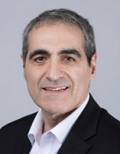
Serge Fdida
Sorbonne Université, France

Manu Gosain
Northeastern University, US
Technical Program Committee (TPC):
- Serge Fdida, Sorbonne Université, Co-Chair, France
- Manu Gosain, Northeastern University, Co-Chair, USA
- Srinivas Shakkottai, Texas A&M University, USA
- Aloizio Pereira da Silva, Commonwealth Cyber Initiative & Virginia Tech, USA
- Tommaso Melodia, Northeastern University, USA
- Stefano Basagni, Northeastern University, USA
- Paul Ruth, University of North Carolina Chapel Hill, USA
- Ivan Seskar, Rutgers University, USA
- Kobus Van Der Merwe, University of Utah, USA
- Rudra Dutta, North Carolina State University, USA
- Hongwei Zhang, Iowa State University, USA
- Didier Bourse, Nokia, France
- Thanasis Korakis, University of Thessaly, Greece
- Andrea Passarella, CNR, Italy
- Bartosz Belter, PSNC, Poland
- Yuri Demchenko, University of Amsterdam, The Netherlands
- Antonio de la Oliva (University Carlos III of Madrid)
- Ari Pouttu, University of Oulu, Finland
- Christian Perez, INRIA, France
- Costas Filis, Cosmote, Greece
- Sebastien Ziegler, Mandat International, Switzerland
- José Rezende, RNP, Brazil
- Aki Nakao, University of Tokyo, Japan
- Ruslan Smelianski, Applied Research Center on Networking, Russia
- Alain Mourad, Interdigital, UK
- Raymond Knopp, Eurecom, France
- Per Hjalmar Lehne, TELENOR, Norway
- Vijay Shah, George Mason University, USA
- Chandra R. Murthy, Indian Institute of Science, Bangalore, India
- Anthony Franklin, Indian Institute of Technology Hyderabad, India
